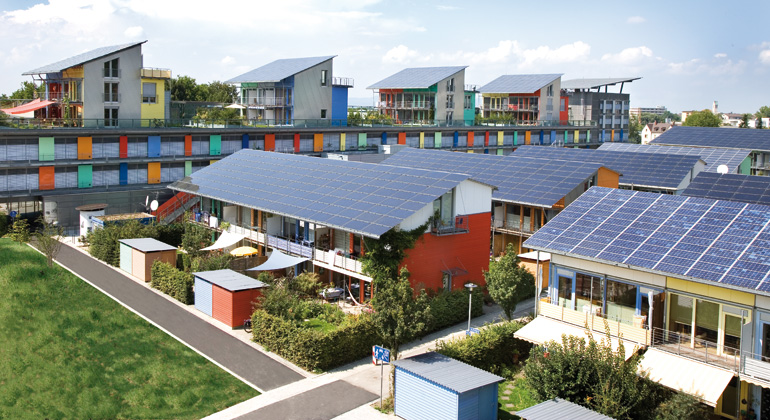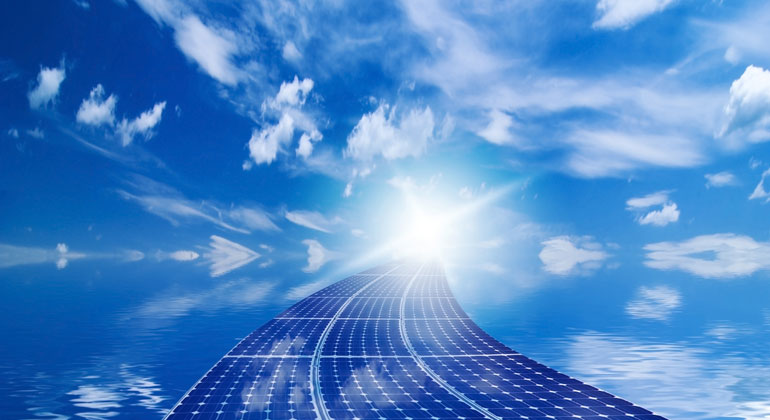Solar future versus fossil past
Putin’s Ukraine war at the latest makes it clear to us that we must become independent of fossil fuels as quickly as possible.
The fossil age will not end for lack of fuels any more than the Stone Age ended for lack of stones. But renewables are so vastly superior, both environmentally and economically, that they will defeat the old business models of coal, gas, oil and uranium in just a few years through exponential growth. Silicon Valley entrepreneur and Stanford lecturer Tony Seba is also convinced of this in his book “Clean Revolution 2030.”
The reason for his optimism: The invention of the car, as well as the Renewable Energy Sources Act, began their triumphant march in Germany. And both revolutions spread like wildfire around the world. Cars were available all over the world just a few years after they were invented. And that’s exactly how it will be with renewable energies. The first Green Minister President in Germany, Winfried Kretschmann, said in the 2021 election campaign when asked what was most important now: “Three things: first, climate protection, second, climate protection, third, climate protection.” That’s even more true now in wartime.
It’s actually quite simple with a bit of economics: in 1970, when solar research was just getting off the ground in Germany, producing a kilowatt-hour of solar power cost about two euros. When the Bundestag passed the Renewable Energy Sources Act in 2000, it was still 70 cents; today, we still have production costs of about three/four cents in this country. Soon we will be at maybe two cents. This is ultimately thanks to the great progress made by solar researchers in a number of scientific institutes and the politicians and civil servants who got them the money for research. In Africa, solar power is already being generated for under two cents per kilowatt hour.
Disch Houses

Courageous forward thinkers initiated and drove this most important research turnaround in Germany. This is why the solar architect Rolf Disch was able to build the first solar-plus-houses in Freiburg as early as the eighties and an entire solar settlement with solar-plus-houses in the nineties, which produce more energy than is consumed in this settlement. Solar-plus houses can and must become standard.
Rolf Disch is looking for wood from medieval half-timbered houses to build his solar wooden houses with today – the modern building material is thus 500 and more years old and can be used again in a few hundred years.
Also in Freiburg, solar pioneer Georg Salvamoser (his motto: “You can slow us down, but you can’t stop us”) built the first CO2-neutral solar factory 28 years ago, the city of Freiburg later built the first city hall that produces more energy than it consumes, and now the first large zero-energy soccer stadium. New buildings are now only approved in Freiburg if they are self-sufficient in renewable energy. Stadtwerke München already produces 90 percent green electricity for the Bavarian city of millions. The goal is to reach 100 percent by 2025.
The issue now is a solar energy turnaround, which will come mainly for economic reasons: Until now, energy costs have been rising permanently. If you want to reduce them, you have to rely on renewable energy sources. Sun and wind do not send a bill, they are – in stark contrast to the old energy sources – gifts from heaven. Energy from the very, very top!
Solar power is already being generated and used from Greenland to New Zealand – cost-effectively, permanently and in a climate-friendly manner. The renewable energies are freedom and peace energies. A potentate like Putin can blackmail us with his gas, but never with the sun. It shines for everyone and on every roof. Exactly where it is needed. What are we waiting for?
Source
Franz Alt 2022 | Translated with www.DeepL.com/Translator (free version)








